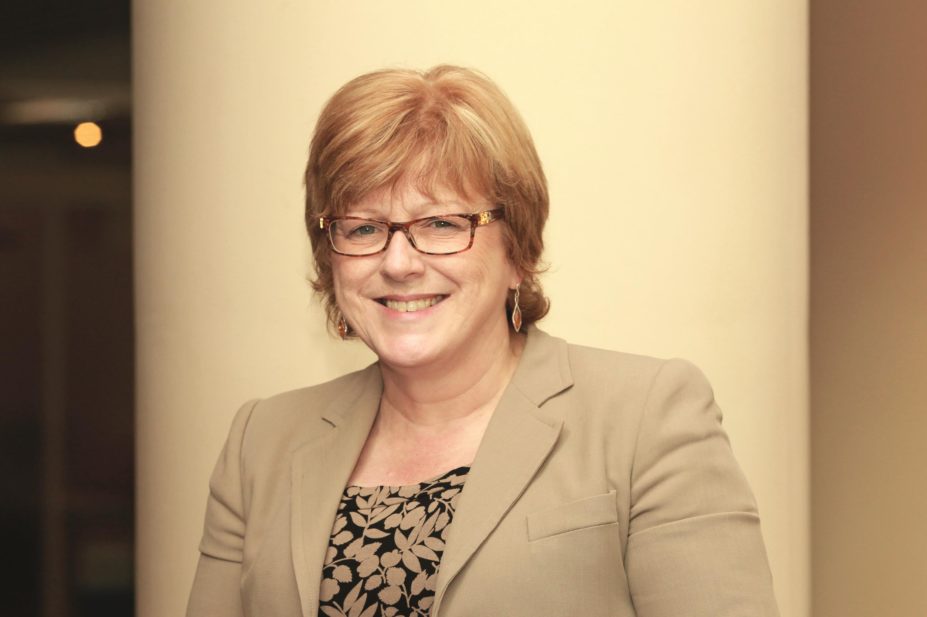
Royal Pharmaceutical Society
The failure of talks to introduce a national minor ailment service across community pharmacies in England is “deeply frustrating” and will be discussed further with ministers, the chair of the English board of the Royal Pharmaceutical Society (RPS) says.
Sandra Gidley, chair of the English Pharmacy Board, describes the lack of such a scheme in the 2015–2016 community pharmacy contract as “a missed opportunity all round” and says the Society had believed until late in the day that a deal would be struck.
The Pharmaceutical Services Negotiating Committee (PSNC) announced in May 2015 it was holding discussions with NHS Employers, on behalf of NHS England, to introduce the service, but it recently emerged that the parties had failed to reach agreement when details of the contract were revealed on 20 July 2015.
In a statement, Gidley said: “Like many community pharmacists I was disappointed that NHS England and PSNC have not reached agreement on a national minor ailments scheme through community pharmacy, a key priority of the English Pharmacy Board. A nationally commissioned scheme would be less confusing for patients and would also create more capacity in primary care.”
The RPS had lauded the talks as a sign that “significant progress” had been made in its campaign, launched in October 2014, which called for the service to be introduced.
Gidley tells
The Pharmaceutical Journal
: “I think it’s actually a missed opportunity all round.
We are constantly being told about winter pressures. There was an opportunity to do something innovative where pharmacy could have a consistent service across the country; people could go and have a proper consultation and that would take the pressure off GP surgeries.
“It is deeply frustrating because we had been led to believe, right up until fairly recently, that everybody was very sympathetic to this idea. I don’t know what went wrong, but I do think that if we were really putting patients first then this would have been given a try.”
She said the RPS would raise the issue in upcoming meetings with health ministers, NHS 111 and the urgent and emergency forums that the RPS is represented on. “This has got to be kept in play,” she says.
Gidley defended the RPS’s campaign that called for a national minor ailment service. “I think we did everything we could [to promote the scheme],” she says. “It is disappointing and frustrating, but we haven’t really stopped asking for this [and] I think we need to renew our efforts.”
When negotiations were first announced, the PSNC said it had “long believed” that a national minor ailments service would benefit patients, pharmacies and the NHS.
Following the contract announcement, PSNC chief executive Sue Sharpe said the committee had hoped to reach an agreement and had developed a detailed proposal, but that it had been
a “last-minute decision” not to commission the service. She said this
“represents a massive missed opportunity for the NHS”.
A spokesperson for NHS Employers said: “NHS Employers and PSNC were unable to reach an agreement on the price, specification and service model and require more time to consider the composition and feasibility of a nationally commissioned service. We expect this will be discussed in the next negotiating round. It would be inappropriate at this stage to speculate on when and if it will be introduced.”
Pilot involvement urged
Meanwhile, NHS England has announced eight new “vanguard” sites that will aim to integrate urgent and emergency care across local areas, including hospitals, GP practices, pharmacists, community teams, ambulance services, NHS 111 and social care.
Six sites will cover smaller local systems, which may include hospitals and surrounding GP practices and social care. A further two vanguards will work across areas with much larger populations to integrate care on a greater scale.
“I would encourage pharmacists, especially those working in the eight urgent and emergency care vanguard sites announced, to use this opportunity to show how much we already do and what more is possible,” says Gidley.
“This plan stresses that far greater integration is needed across primary and secondary care to improve services for patients and increase efficiency.”
Gidley says pharmacy needs to think “outside our traditional roles” and about how it can join up and improve pharmaceutical care, as the NHS “requires our profession to be adaptive to change”.
Funding for the sites will be drawn from the £200m Transformation Fund announced in March 2015. This money was announced alongside an initial wave of 29 vanguard sites to test new models of care as proposed by the NHS ‘Five year forward view’.
You may also be interested in
Long service of members

Membership fees 2022
